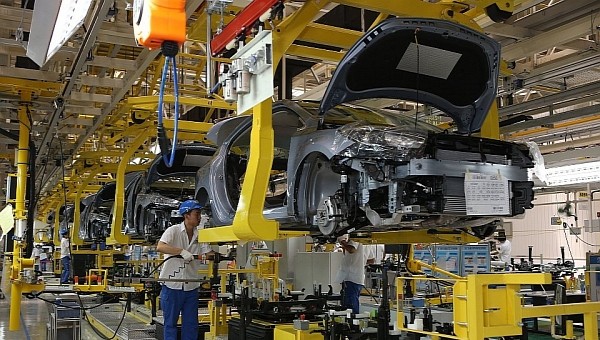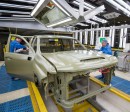The chip shortage emerged in 2020 as a new kind of problem that brought the automotive industry to its knees. Carmakers across the world struggled with a very constrained semiconductor inventory, in many cases turning to solutions like temporary halts of production as a way to minimize disruptions in their daily operations.
Three years later, the lack of chips continues to be a major concern in the car manufacturing business, especially when coupled with rising inflation, the growing prices of materials, and the global health issue that still causes uncertainty, especially in the Chinese supply chain.
Engineering company ABB, however, believes the worst is already over, and the end of the chip shortage is on the horizon. In other words, there’s a good chance that the production of chips would eventually align with the demand, therefore helping customers, including carmakers, address the ridiculously long waiting times for new cars.
In a recent interview, ABB chairman Peter Voser said the semiconductor crunch severely hit the company, especially as its focus these days is on electrification and robotics, two sectors that heavily rely on chips.
After facing a very constrained inventory, ABB now expects the production of chips to get in line with the demand later this year, especially given the global growth slowdown happening across the world.
While ABB seems very optimistic that the chip shortage is “being sorted out,” carmakers out there don’t expect the global inventory to improve substantially in the short term.
Toyota has recently issued a new forecast for 2023 production, explaining that its target could still be impacted by the lack of chips. The Japanese carmaker, which estimated it would build 10.6 million vehicles this year, said the figure could go down by approximately 10 percent due to the struggle in the supply chain.
General Motors previously released a pessimistic forecast as well. The company’s CEO Mary Barra said the chip shortage is very likely to continue in 2023, explaining that carmakers could end up facing similar problems even beyond this year.
At this point, however, the uncertainty makes it impossible to tell what’s going to happen not necessarily in the long term but in the short term as well. Others believe the constrained inventory could turn into a flood of semiconductors as soon as this year, especially following the aggressive investments in capacity. New production plants are projected to go live in 2024, especially as governments are investing billions of dollars in subsidies.
In the United States, for example, the CHIPS Act is encouraging chipmakers to invest in local production power, with domestic carmakers, including Ford and General Motors, to eventually benefit from improved inventory in the long term. Whether or not ABB’s forecast is accurate is something we’ll all find out, but for now, there are more and more signs that the chip shortage is coming to an end.
Engineering company ABB, however, believes the worst is already over, and the end of the chip shortage is on the horizon. In other words, there’s a good chance that the production of chips would eventually align with the demand, therefore helping customers, including carmakers, address the ridiculously long waiting times for new cars.
In a recent interview, ABB chairman Peter Voser said the semiconductor crunch severely hit the company, especially as its focus these days is on electrification and robotics, two sectors that heavily rely on chips.
After facing a very constrained inventory, ABB now expects the production of chips to get in line with the demand later this year, especially given the global growth slowdown happening across the world.
While ABB seems very optimistic that the chip shortage is “being sorted out,” carmakers out there don’t expect the global inventory to improve substantially in the short term.
Toyota has recently issued a new forecast for 2023 production, explaining that its target could still be impacted by the lack of chips. The Japanese carmaker, which estimated it would build 10.6 million vehicles this year, said the figure could go down by approximately 10 percent due to the struggle in the supply chain.
General Motors previously released a pessimistic forecast as well. The company’s CEO Mary Barra said the chip shortage is very likely to continue in 2023, explaining that carmakers could end up facing similar problems even beyond this year.
At this point, however, the uncertainty makes it impossible to tell what’s going to happen not necessarily in the long term but in the short term as well. Others believe the constrained inventory could turn into a flood of semiconductors as soon as this year, especially following the aggressive investments in capacity. New production plants are projected to go live in 2024, especially as governments are investing billions of dollars in subsidies.
In the United States, for example, the CHIPS Act is encouraging chipmakers to invest in local production power, with domestic carmakers, including Ford and General Motors, to eventually benefit from improved inventory in the long term. Whether or not ABB’s forecast is accurate is something we’ll all find out, but for now, there are more and more signs that the chip shortage is coming to an end.






